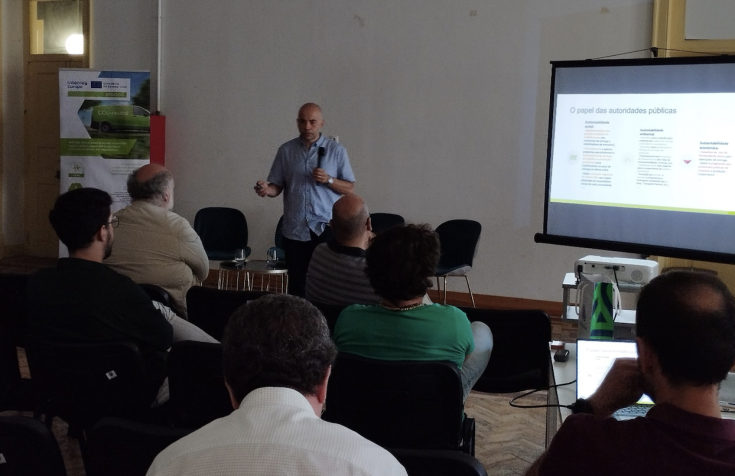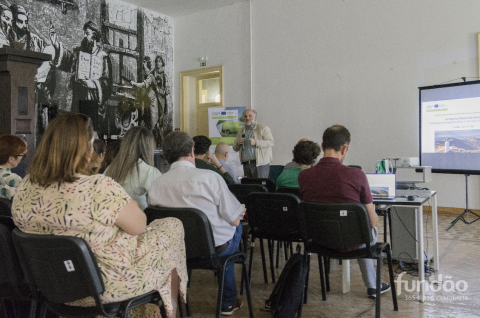1st Regional Stakeholder Group Meeting in Fundão, Portugal

On July 13, 2023, the first regional stakeholder meeting of the SPOTLOG Project took place, hosted by the Municipality of Fundão, under the theme "Challenges and Opportunities in the Last Mile Logistics Sector".
The meeting was attended by several entities, such as researchers, management authorities, entities linked to the municipality as well as local commerce, as well as representatives of the Commercial and Industrial Association of the Municipality of Fundão. After sharing the vision and objectives of the SPOTLOG Project, a brief presentation of the challenges and potential opportunities for the region regarding the improvement of logistics-related issues followed. Additionally, specific funding opportunities through the OP Centro 21-27 were shared and issues were discussed.

Within the meeting, crucial points were highlighted that illustrate the challenges inherent in a change in the way citizens move and acquire goods. Several changes have been noticed since the pandemic, so a change in consumption habits and models is emphasised and requires an update of the management of logistics chains. In general, it was observed that the consumer prefers a more customised service and everything that concerns the logistics chain, in order to be sustainable, will always have to take into account the new trend, which may have come to stay. Thus, a focus on a more tailored service, coupled with innovative urban policies, with interconnectedness of functions is based on a new urban conceptuality. It is essential to define plans and strategies for integrated micro-logistics in the city context, and a new generation of greener and more sustainable transport may be on the way.
One way to take advantage of some infrastructure already in place is to integrate people mobility with logistics. The shared idea of introducing micro hubs and lockers is very interesting and can be seen as planning for new urban furniture, strategically implemented in areas that already generate people movement, which would be an opportunity to remove the capillarity of deliveries to each house, saving last-mile deliveries.
It also makes sense to have a proximity strategy, involving local commerce and services to receive goods, as well as enabling their digitisation in order to expand the market.
However, the optimisation of proximity logistics with micrologistics requires logistics intermediation and is a challenge for carbon reduction. In this sense, the discussion among the participants ended up in the idea of a system of local carbon communities: if we can create good practices in a community this will be essential because it contributes unequivocally to global terms.
The challenges ahead focus on carbon neutrality and on establishing and defining conditions that facilitate the sustainable reorganisation of the logistics chain to initially optimise routes for home delivery, micro-logistics, and specific proximity centres. In this field, it is important to integrate new logistics equipment but also to provide capacity-building among the various stakeholders and entities regarding the issue of carbon reduction, sustainable travel and delivery. Some questions arose and needed especial attention: How to measure the impacts associated with a delivery? How to adapt the city in terms of infrastructure and planning in order to have a more carbon neutral city?
